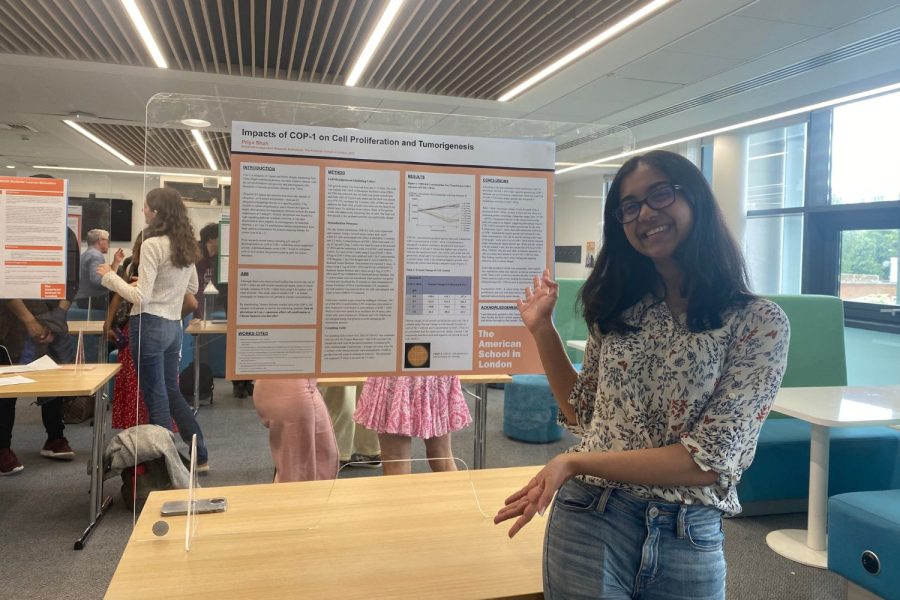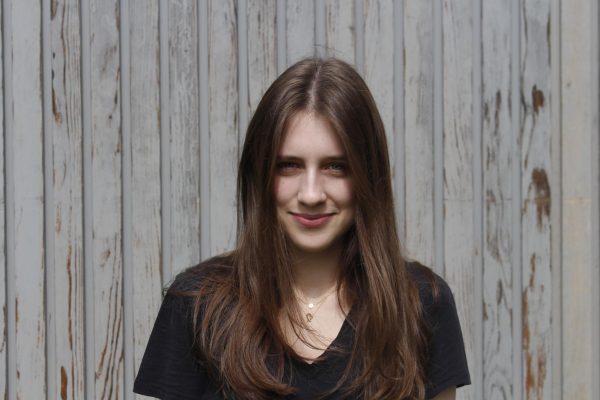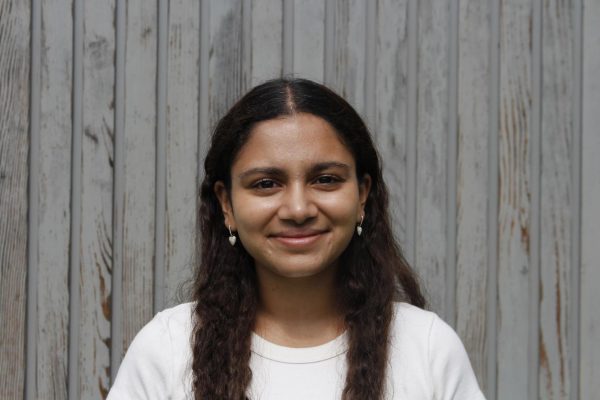Among students researching various topics in the Advanced Independent Research Colloquium class, Priya Shah (’22) conducted cancer research.
The Advanced Independent Research Colloquium class enables Grade 11 and 12 students to research a topic of their choice at a college level, concluding with an annual Research Symposium. The Research Symposium involved students sharing the findings of their research with the community through posters and presentations June 7.
Topic selection
Shah said biology always piqued her interest more than other science subjects, which inspired her to further pursue the topic in the Advanced Independent Research Colloquium.
“Biology has always been my favorite science honestly, and I’ve never really drifted towards chemistry or physics in that sense,” she said. “I really wanted to dive a bit deeper into [biology], and I thought the research class was the best way to do that for me.”
Furthermore, Shah said her fascination with biology and aspirations to pursue medicine inspired her research topic.
“I’ve always liked biology and I’ve always been interested in becoming a doctor,” she said. “I guess biology and doctor … kind of came together towards the topic of cancer.”
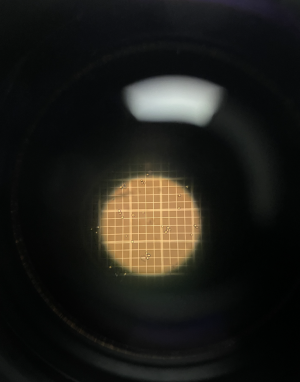
(Photo courtesy of Priya Shah )
Shah said her original research topic centered around T-cells, but with emerging time constraints, she changed her topic several times before deciding to delve into the COPI protein.
Shah said the broader focus of her project was to determine whether the COPI protein can be used for focused cancer therapy as well as if it can be utilized by doctors when diagnosing cancer. She said she specifically explored how the protein “increases cell growth and whether or not on its own it could cause cancer.”
After solidifying her topic, Shah said the class spent their first semester learning how to write research proposals and literature reviews as well as how to structure their report in an academic manner.
Shah said the second semester marked “the heart of the research,” which also consisted of writing a 20-page research paper covering background information, the procedure and results.
Challenges and highlights
When planning her research collection, Shah said she faced difficulties sourcing the materials necessary.
“Being able to find certain resources and materials was pretty challenging,” she said. “Finding the protein, specifically in a little vial, was really hard because it’s not really a protein that a lot of scientists test on.”
In addition, Shah said unexpected time constraints posed obstacles, where she had to wait two months for supplies to arrive.
Shah said issues also arose when her initial plan of injecting COPI protein into cells did not work. In response, she said she adapted her procedure to transfection, a method where protein is applied to the tops of cells and absorbed using lipids.
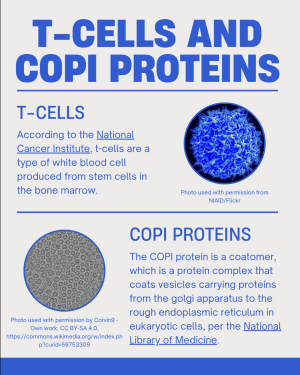
Consequently, Shah said she was rushed to complete her data collection after the setback with the injection, which took up valuable time. Thus, instead of the anticipated five weeks for data collection, Shah said she was left with less than two weeks to apply the proteins.
Nonetheless, Shah said she was thrilled with the results of her research, which confirmed COPI protein increases cell growth.
“Honestly, just seeing that made my entire year for research,” she said. “On top of [the results], writing my research paper and seeing everything come together was a really good experience.”
Takeaways
Shah said she encourages other students to enroll in the Advanced Independent Research Colloquium as it allows them to explore their interests.
“I really enjoyed it,” she said. “I would recommend it to other students who are really into research projects or just diving into a specific topic that they’ve not been able to do before.”
For future Advanced Independent Colloquium students, Shah said it is essential to choose a topic that interests them.
“If you go into a topic that you really like and study for the whole year, it can actually be a really interesting experience,” she said.
Moreover, Shah said she urges all students taking any type of research course to manage their time wisely because time management is a crucial skill.
Ultimately, Shah said the class has been both beneficial and interesting, teaching her useful skills and allowing her to dive deeper into her field of interest.
“It’s taught me a lot about how to write academically and how to do an entire research project on your own,” she said. “You have a bit of guidance from teachers and, for me, the lab techs … but it’s really based on what I wanted to do and how I wanted to make the most of the class.”




